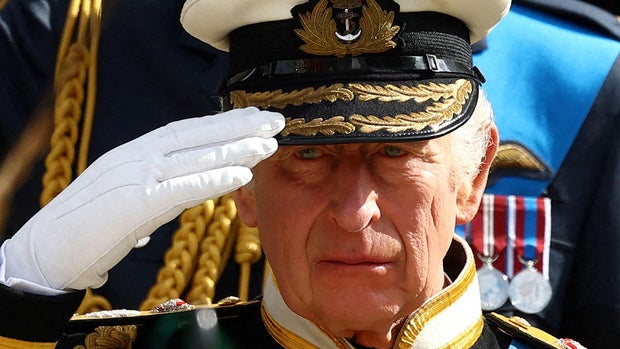
He was the last surviving original member of the group, which also featured Bob Marley and Peter Tosh. Together they helped spread the music of Jamaica worldwide.
Bunny Wailer, the last surviving original member of the Wailers, the Jamaican trio that helped establish and popularize reggae music — its other founders were Bob Marley and Peter Tosh — died on Tuesday at a hospital in Kingston, Jamaica. He was 73.
His death was confirmed by Maxine Stowe, his manager, who did not state a cause.
Formed in 1963, when its members were still teenagers, the Wailers were among the biggest stars of ska, the upbeat Jamaican style that borrowed from American R&B. On early hits like “Simmer Down” and “Rude Boy,” the three young men — who in those days wore suits and had short-cropped hair — sang in smooth harmony, threading some social commentary in with their onomatopoeic “doo-be doo-be doo-bas.”
“The Wailers were Jamaica’s Beatles,” Randall Grass of Shanachie Records, an American label that worked extensively with Bunny Wailer in the 1980s and ’90s, said in a phone interview.
By the early 1970s, the Wailers — now in loose clothes and dreadlocks — became one of the flagship groups of a slower, muskier new Jamaican sound: reggae. The group’s 1973 album “Catch a Fire,” with songs like “Concrete Jungle” and “Slave Driver,” is one of the canonical releases of so-called roots reggae, with a rock-adjacent production style and socially conscious lyrics.
Marley and Tosh were the group’s primary songwriters and lead vocalists. But Bunny, who also played percussion instruments, was a critical part of their harmony style. Among fans at least, the three men settled into character roles like reggae superheroes.
“Peter Tosh was the real militant one, then Bob was the poetic revolutionary humanist,” said Vivien Goldman, the author of “The Book of Exodus: The Making and Meaning of Bob Marley and the Wailers’ Album of the Century” (2006). “Bunny was regarded as the spiritual mystic.”
Born Neville Livingston, he took the name Bunny when he joined the group; he was variously credited as Bunny Livingston or Livingstone before settling on Bunny Wailer in the 1970s.
The Wailers toured Britain and began to build international acclaim, but by 1973 the original trio had split up. Marley, heading toward global stardom, began performing under the billing of Bob Marley and the Wailers. Bunny disliked touring and, as a follower of the Rastafari faith, he’d been uncomfortable performing in bars, viewing them as unsuitable venues for the group’s spiritual message.
Neville Livingston was born in Kingston on April 10, 1947, and grew up in the village of Nine Mile in St. Ann Parish, off the northern coast of Jamaica. He and Marley met as children there, and for a time Marley’s mother, Cedella, lived with Neville’s father, Thaddeus, in the Trench Town section of Kingston.
The two friends met Peter Tosh — whose real name was Winston McIntosh — through Joe Higgs, of the Jamaican pop duo Higgs and Wilson. Early on the Wailers also included Junior Braithwaite and Beverly Kelso, and they recorded with top producers of the day like Coxsone Dodd, Leslie Kong and Lee (Scratch) Perry.
After leaving the Wailers, Bunny continued to make music, including his first solo album, “Blackheart Man,” in 1976; he produced it himself, wrote most of the songs and released it on his own label, Solomonic. But while Marley and Tosh toured widely, Bunny largely stayed in Jamaica, where he built a powerful mystique.
He made his New York debut in 1986 at Madison Square Garden, with opening acts and backup groups, like the vocal ensemble the Psalms, that he had chosen to represent Jamaican musical history. Three years later, when he performed at Radio City Music Hall, Jon Pareles of The New York Times described the show as being “like a gospel service with a reggae beat,” with Bunny dressed in a robe decorated with the silhouette of Africa, a Star of David, the Lion of Judah and marijuana leaves.
Bob Marley died of cancer in 1981. Peter Tosh was shot to death in 1987.
According to Ms. Stowe, Bunny Wailer’s survivors include 13 children, 10 sisters, three brothers and grandchildren. Ms. Stowe said that Jean Watt, his partner of more than 50 years, had dementia and had been missing since May.
Bunny won the Grammy Award for best reggae album three times. Two of those albums were tributes to Marley.
He was given Jamaica’s Order of Merit in 2017. Peter Phillips, a minister in Jamaica’s parliament, said that his death “brings to a close the most vibrant period of Jamaica’s musical experience” and called him “a good, conscious Jamaican brethren.”
https://ift.tt/2PtewUt
Entertainment

No comments:
Post a Comment